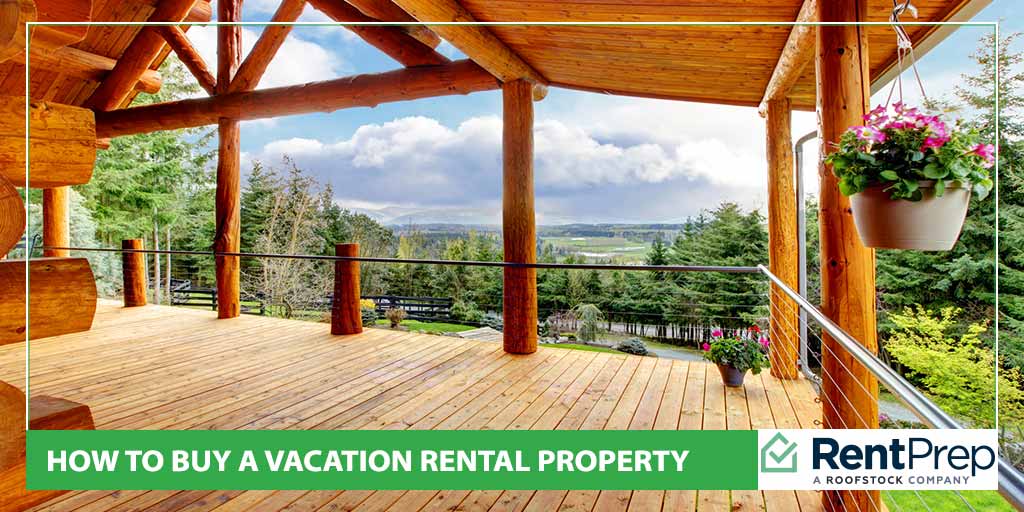
Embarking on the journey of investing in a vacation rental property can open doors to a promising opportunity, whether you’re a new landlord or a seasoned investor looking to expand your portfolio. Beyond providing a retreat for travelers, a vacation rental holds the potential for lucrative returns through short-term rentals.
Are you curious about how to navigate the discovery, financing, and management of a vacation rental? Your starting point is here in our comprehensive guide.
We’ll delve into the essence of vacation rentals and outline the perks of investing in this niche. From there, we’ll walk you through the steps of procuring a vacation rental property, supplemented by ten top tips that can significantly impact your success. Stay with us to unlock the secrets of a prosperous venture into vacation property investment.
Table Of Contents For Vacation Rental Properties
Finding the perfect property is only the first step when buying and renting out a vacation property. Learn what is involved below.
- What Is A Vacation Rental Property?
- How To Buy A Vacation Rental
- Top Tips For A Successful Vacation Rental
- FAQs – Vacation Rentals
- What Makes A Good Location For A Vacation Rental Property?
- How Much Down Payment Is Typically Required For A Vacation Rental Property?
- Can I Use A Vacation Rental Property As A Personal Vacation Home?
- What Are The Key Expenses To Consider When Buying A Vacation Rental?
- How Do I Determine The Potential Income From A Vacation Rental?
- Enter The Short-Term Rental Market
What Is A Vacation Rental Property?

First and foremost, what do we mean when we talk about a vacation rental property? This property, which could be a house, apartment, condo, villa, or some other type of dwelling, is usually fully furnished and set up for short-term stays for travelers, often as an alternative to a hotel.
Many travelers prefer this kind of property because it offers privacy and space plus self-catering facilities, meaning it’s more of a home away from home. These rental homes are particularly popular with travelers staying anywhere from a few weeks to a few months.
As a landlord, you may need to market your property through the specific vacation rental platform you prefer to use, according to their terms of service.
While you can charge a premium for rent compared to standard six-month or one-year leases, additional expenses are involved when it comes to welcoming guests and cleaning and maintaining the space between guests.
There are a variety of benefits for landlords of investing in vacation rental properties:
- Potential for higher income: Short-term vacation rentals usually offer a higher revenue per night than standard rentals, but there is a higher risk of periods of extended vacancy.
- Personal use: Landlords can use the home on holidays and allow family and friends to use the property.
- Property appreciation: Like most real estate, rental properties will likely increase in value while producing income to pay for themselves.
- Portfolio diversification: Having a range of properties in different areas spreads your risk and reduces the chances of your being badly affected by changes in any one market.
- Tax benefits: Landlords can deduct expenses related to the maintenance and operation of the rental from their taxes.
Overall, many good reasons exist to invest in a vacation rental property.
How To Buy A Vacation Rental
Investing in a vacation property can be more challenging than investing in a personal home or a standard rental property. You are more likely to deal with a market you are unfamiliar with. In addition, you need to consider different factors, such as tourist trends rather than demand for homes.
Follow the step-by-step guide below to get you started:
Step 1: Market Research
Start by doing your research. You should focus your research on two main areas. First, understand the regulations that govern the short-term rental market in the location where you’re considering buying, such as zoning laws, permits, and taxes. Second, understand the local market and the best types of properties to buy and where.
For example, if you’re looking at New York, you must register your short-term rental with the OSE office, or it cannot be advertised on online booking service platforms. If you are in Palm Springs, California, you can only rent your property for fewer than 28 days at a time, and you must have liability insurance of at least $500,000.
Consider seasonal demand and proximity to attractions and airports when choosing a location. You should research existing market saturation, occupancy rates, and pricing.
Read our guide to the best cities for Airbnb investing and how to choose here.
Step 2: Define Your Investment Goals
You should also evaluate what your personal goals are with your investment. Are you looking for something for personal use, immediate monthly income, or a long-term investment likely to significantly increase value?
You should also assess your financial capacity, what you can afford, and how much risk you can afford to take. Where will you find financing, and what is your strategy to support the purchase?
Assess your budget, not only for the property itself but also for maintenance, management, insurance, taxes, and utilities. What return on investment do you need to make this feasible, and what is your likely ROI?
Step 3: Secure Financing
With all this information, you can start looking for finance options. Investigate traditional mortgages, investment property loans, and other creative financing solutions.
When you’re ready, get pre-approved for a loan so you know how much you have to spend and are in a strong position when negotiating with sellers.
Step 4: Property Search
While you have no doubt been searching for properties as part of your research, now is the time when your property search begins in earnest, focused on your chosen locations.
Make sure you visit the area and see what it’s like, even if you’re working with a real estate agent with good local knowledge.
Make sure you also take the time to look at similar vacation rentals available in the area so you understand the market and the competition.
Step 5: Make An Offer
Once you have found the right property, it’s time to make an offer. Know your budget and be prepared to negotiate with the seller.
Don’t forget to do your due diligence to ensure the investment is sound. Hire a professional to conduct a thorough inspection and identify any hidden issues. Also, ensure no legal issues, such as liens or disputes, could undermine your ownership.
When all this is done, you are ready to close the deal.
Step 6: Set Up Your Vacation Rental

If you’re purchasing to rent, you need to set up the home for guests. This usually means it must be fully furnished and have all required appliances. You can read our guide to setting up your house for Airbnb guests here.
Don’t forget to seek the appropriate permits and insurance as dictated by the laws where the property is located.
You’ll also have to decide whether to manage the property yourself or outsource to a management company. This may depend on how conveniently the property is located for you.
When ready, you can start creating listings for your property on booking platforms. This requires taking compelling photos that capture the ambiance of the property and the area in which it is situated.
But once you hit publish on the rental listing, your work is only just beginning. You need to screen potential tenants, organize maintenance and cleaning, and monitor your guests’ experience to ensure you’re getting positive reviews. This is one of the most important factors that will make your property stand out from the crowd.
You also need to monitor your property’s performance and adjust your pricing and marketing strategies to optimize your return on investment.
Step 7: Declare Your Income
One mistake that vacation homeowners often make is not properly managing their income and expenditures in their taxes. You may not be getting the tax benefits you could, or you may find yourself owing the IRS.
While you should consult a tax expert to ensure you’re getting it right, these are the main things to consider:
- Report all income from your short-term rental on your tax return. This includes both rental income and fees charged, such as cleaning fees. Report on Form 1040 Schedule E.
- Know what the tax rules are in your circumstances. There are different rules if you use the property personally for more than 14 days or 10% of the total days it was rented (whichever is greater).
- Evaluate if you candeduct expenses related to the rental activity, including advertising, cleaning maintenance, utilities, insurance, and management fees. You can also deduct depreciation and repairs.
Keep detailed records, so you have all the right information on hand when speaking with your tax consultant.
Top Tips For A Successful Vacation Rental
If you still aren’t 100% confident, these top 10 tips for making a success of a vacation property rental may help.
Research The Location Thoroughly
Choose a location that is not only desirable for you but also attractive to a wide range of potential renters. Look for areas with high tourist traffic and access to popular attractions or natural beauty.
Understand Local Regulations
Investigate local laws and regulations regarding short-term rentals, as some areas have strict rules or even bans on such properties. Ensure you can legally rent out the property before making a purchase.
Assess Market Demand And Seasonality
Evaluate the demand for short-term rentals in the area, including peak and off-peak seasons. This understanding will help in setting realistic income expectations and pricing strategies.
Calculate Total Costs, Not Just Purchase Price
Factor in all expenses, including property management, maintenance, utilities, insurance, and taxes, not just the initial purchase price. This will give you a more accurate picture of the investment required and potential returns.
Plan For Property Management
Decide whether you will manage the property yourself or hire a property management company. Consider the demands of managing bookings, guest communication, cleaning, and maintenance.
Prioritize Properties With Rental Appeal
Choose a property with features appealing to short-term renters, such as a good location, amenities, scenic views, and unique characteristics. Remember, what attracts a renter can differ from what appeals to a homebuyer.
Secure Adequate Financing
Understand that vacation rental financing might differ from a primary residence. Shop around for the best mortgage rates and terms, and be prepared for higher down payments and interest rates.
Consider Future Resale Value
While focusing on rental potential, also consider the property’s resale value. An ideal vacation rental is not only profitable in the short term but also appreciates over time.
Prepare For Income Fluctuation
Be financially prepared for fluctuations in rental income, especially if the area is subject to seasonal variations in tourism. It’s important to have a financial buffer for times when the property may be vacant.
Focus On Guest Experience
Creating a great guest experience can lead to positive reviews and repeat business. Think about the comfort, convenience, and special touches that can make your property stand out.
FAQs – Vacation Rentals
Below are answers to frequently asked questions about buying a vacation rental property.
What Makes A Good Location For A Vacation Rental Property?
A good location for a vacation rental is typically in areas with high tourist appeal, easy access to popular attractions or natural beauty, and good transportation links. Factors like safety, amenities, and the potential for year-round rental income also play a crucial role.
How Much Down Payment Is Typically Required For A Vacation Rental Property?
The down payment for a vacation rental property often ranges from 20-30% of the purchase price, higher than a primary residence due to the increased risk lenders associate with rental properties.
Can I Use A Vacation Rental Property As A Personal Vacation Home?
Yes, you can use it as a personal vacation home. However, be aware that the length of time you can personally use the property may impact the tax implications and financing terms.
What Are The Key Expenses To Consider When Buying A Vacation Rental?
Key expenses include the mortgage, property taxes, insurance, utilities, maintenance and repairs, property management fees, marketing costs, and any homeowners’ association fees, if applicable.
How Do I Determine The Potential Income From A Vacation Rental?
To estimate potential income, research the average nightly rental rates in the area, occupancy rates, and seasonal trends. Tools like rental calculators and data from vacation rental websites can also provide insights.
Enter The Short-Term Rental Market
Are you ready to enter the short-term vacation rental market? This can be a fun and dynamic way to diversify your property portfolio while spreading your risk. There is a lot of potential to increase your income through making improvements to your property and your rental offer.
Note: RentPrep does not provide tax, legal or accounting advice. This material has been prepared for informational purposes only and is not intended to provide, and should not be relied on for, tax, legal, or accounting advice. You should consult your own tax, legal, or accounting advisors.

